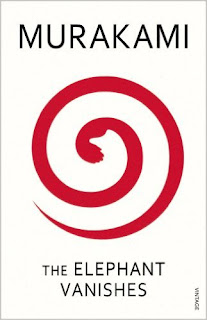#amreading The Book of Strange New Things
Author: Michel Faber
Discovered: Waiting at Marylebone railway station
Where read: (in part) A tiny cottage near Matlock, Derbyshire.
What's the story?
Michel Faber's novel was first published in the US to favourable reviews and is now available in the UK in paperback - cleverly published with 2 cover versions (see above). The novel is a slice of near future science fiction in which protaganist Pastor Peter Leigh is sent by a Christian organisation, USIC, as a missionary to far flung planet Oasis. The eponymous 'Book of Strange New Things' is, we learn, how the native Oasans refer to the Bible itself.
The Word's Shortlist view:
I must admit that what initial drew me to this book was the different covers which stopped me in my tracks in WH Smith (usually the least inspiring 'bookshop' on my travels). Having recently struggled with Margaret Atwood's MaddAddam I figured it was time to pick up another Sc-Fi novel, so job done I self scanned the novel and began to read immediately.The premise of the book is brilliant, later life Christian Peter applies to become a space missionary and is blasted off to a planet on the edge of the galaxy to preach to a native alien species. Peter has not always been a pastor; his earlier years as a junkie petty criminal somehow appealed to the USIC panel who accepted Peter but not his wife Bea who is left home alone with cat Joshua.
This novel is at its best when Peter initially settles into his new surroundings at the base on Oasis; “There was a red button on the wall labelled EMERGENCY, but no button labelled BEWILDERMENT.” The early meetings with the Osians are teasing and the initial dispatches to Bea back on earth capture the isolation of being so far away from home.
But the trouble with the novel is that it fails to quite live up to its own hype. Oasis is a potentially brilliant setting in which a near future post-Earth utopia could play out but the narrative gets bogged down with Peter's endless anxiety about communicating with home. Faber paints a completely believable world in which the Oasans have an insatiable appetite for Bible teachings which is (sort of) juxtaposed with Bea's witnessing life on Earth unravel but Peter is just a passenger.
I fear Faber was quite right......“What do you expect? This place is one big anti-climax.”
Who should read this book?
Fans of science fiction should certainly give this novel a go. More often than not I struggle with this genre but granted the premise is brilliant and the Oasans are a fascinating alien race.
What’s next on the bookshelfTransAtlantic by Colum McCann











